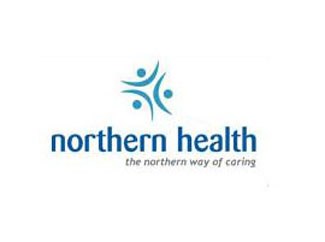In October Northern Health closed its five-day sexual testing clinic in favour of once-a-week clinic because the service was underutilized, said spokesman Jonathan Dyck.
The previous half-day clinic from Monday to Friday saw a daily average of one to three clients when it had space for 15 spots, spokesman Jonathan Dyck said.
"We moved the resources around because we felt that that was the right thing to do with the utilization and staffing levels," said Dyck, adding the Option Health Clinic regularly has all of its appointments filled.
That clinic is only available to those under 25, or in some cases for those who have had contact with someone that has a sexually transmitted infection.
"The other clinic was strictly (sexually transmitted infection) testing... For the most part we find the (Option Health Clinic) meets the clientele that would have been going to the STI clinic so we're giving a more comprehensive options," said Dyck, adding that means STI screening and treatment, PAP testing, contraceptive management and pregnancy counselling.
That new clinic is open every Thursday from 3:30 to 6:30 p.m. and is mostly appointment-based, though drop-ins are accepted if time permits, Dyck said.
It has three nurses and a physician to staff it, part of the "moved resources" from the old clinic, including nurses trained specifically for specialized support. Dyck couldn't confirm the number of staff that had been working at the STI clinic.
In making the closure, Northern Health looked at what is also available in the community, Dyck said, like nurses, general practitioners, walk-in clinics, and the needle exchange.
"There's a lot of community services for people out there," he said. "It really is a personal choice and some people prefer to go to those routes.
"The big thing is we want to promote people practicing safe sex, that includes using a condom, not having more than one partner at a time.. and avoiding sexual contact if you have symptoms."
The north has some of the province's highest rates for chlamydia and gonorrhea, according to the B.C. Centre for Disease Control.
"We do know that some of the STI's are higher Northern B.C. than other parts of the province but we also know there are increase rates of chlamydia for example in B.C. and this mirrors a national trend of a steady increase that began back in 1998," Dyck said.
In the last five years, chlamydia rates have stayed fairly stagnant, with slight decreases, in the northern interior, according to numbers gathered by the Health Service Delivery Area.
In 2014, the north saw 405 cases per 100,000 people, compared to 437 cases in 2010.
Correction: A previous version of this story said the Option Health Clinic was new, when in fact the clinic has been running for years. Northern Health shifted resources to this clinic when it closed the weekly STI testing clinic.



